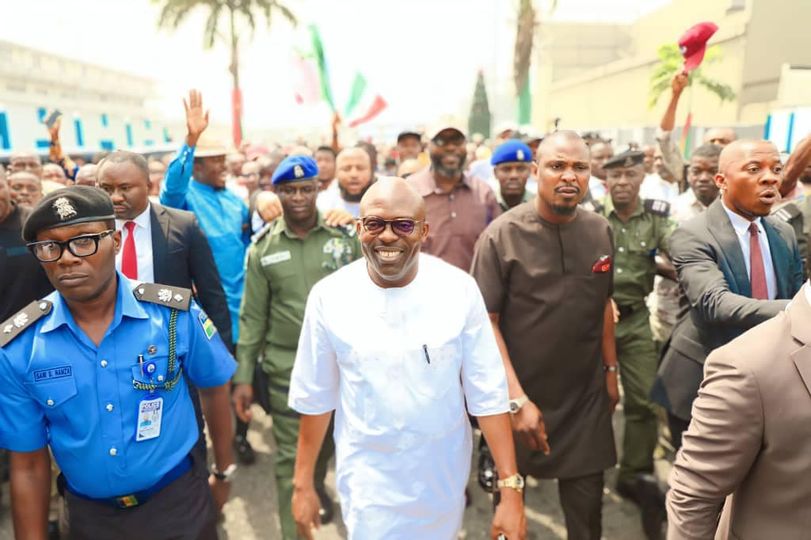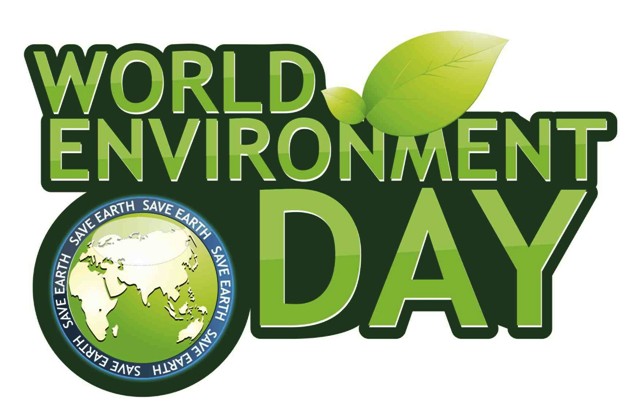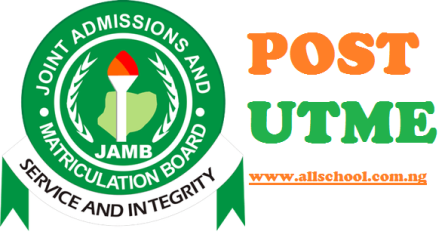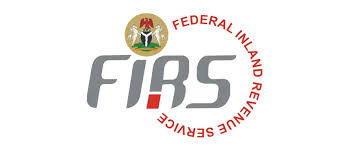Editorial
As S’ Court Upholds Fubara’s Victory …

Yesterday, Rivers State experienced widespread celebrations as the Supreme Court upheld Sir Siminalayi
Fubara of the Peoples Democratic Party (PDP) as the duly elected Governor of the state. The highest court in the land rejected the case presented by the candidate of the All Progressives Congress (APC) over the March 18 governorship election. In a unanimous ruling, a panel of five judges concluded that the appeal made by Tonye Cole of the APC lacked merit.
The judgment was delivered after several adjustments, giving room to sundry speculations. In the lead judgment, Justice Ibrahim Saulawa concluded that Cole and the APC did not substantiate their case with satisfactory evidence. Justice Saulawa addressed and resolved all four issues raised for consideration in the appeal against the appellants. Consequently, he proceeded to reject the appeal.
An elated Fubara, in his response, conveyed his appreciation to God, President Bola Tinubu, his predecessor, and Minister of the Federal Capital Territory (FCT), Chief Nyesom Wike, as well as the people of Rivers State, for their support in achieving victory. He extended an appeal to the opposition to collaborate with him in the development of the state. Furthermore, he affirmed his unwavering dedication towards fulfilling his elected duties, and assured the people that no distractions would interfere with governance.
Fubara stated that his victory at the Supreme Court had effectively resolved the legal disputes that contributed to the various challenges encountered by his administration over the past eight months. Besides the legal tussle, the governor has been embroiled in a political crisis with his predecessor, Wike. The situation led to the factionalisation of the state House of Assembly with members loyal to Wike filing impeachment notice against the governor.
The governor said: “About an hour ago, the Supreme Court revalidated our mandate in the election. It is a victory for the entire state. It is important for us to note that we need this victory to consolidate the purpose of governance. Prior, we have had a few distractions here and there. And the good news that came to us this morning is a refreshing strength that will encourage us to continue the good works in governance.”
The governor called on everyone to join hands with his administration to build a competitive state that will be reckoned with as truly prosperous in all ramifications. According to him, “We have a dream of making it a highly competitive state that will measure, if not up to Lagos but close to becoming like Lagos. We can only achieve this in an atmosphere of peace.
“So, I am calling on everyone, not just on our internal issue but those members from other parties, the issue is settled, come and let’s build the Rivers State of our dream. We will continue to protect and provide the basic needs of governance to everyone who is doing business and who lives in Rivers State.”
The Tide extends its heartfelt congratulations to the governor on his highly merited triumph. The recent ruling by the Supreme Court is undoubtedly a tremendous source of solace, revitalising the administration in the state. Siminalayi Fubara’s success further affirms the timeless proverb that those in positions of power often shoulder great burdens. The immense stress and disruptive effects caused by numerous legal battles and the political turmoil were undeniably significant.
Recall that in the midst of the ongoing political crisis, Mrs Beatrice Itubo, who is the candidate representing the Labour Party (LP), made a declaration, stating that the party had decided to withdraw its petition against the election of Governor Fubara at the Supreme Court. Initially, the LP had contested Fubara’s victory by filing a petition with the Appeal Court in Lagos. However, the court dismissed the LP’s petition, and confirmed the win of the PDP candidate. Several weeks later, Mrs Itubo revealed that the LP had chosen to drop the case.
Also, on New Year’s day, the governorship candidate of Accord Party in the March 18 election, Chief Dumo Lulu-Briggs, announced his withdrawal of the appeal filed at the Supreme Court against the victory of the Governor. The Appeal Court had earlier dismissed Lulu-Briggs’ case at its ruling in Lagos.
Yesterday’s judgment has lifted the burden from the well-meaning people of Rivers State. We strongly urge the governor to respond to this act by implementing an all-encompassing government. Rivers people eagerly awaited this favourable decision with great anticipation. Therefore, Fubara should not underestimate the importance of his victory, and must provide the state with an administration that is honest, transparent, and focused. Rivers people deserve nothing less.
The apex court’s judgment is indeed a triumph for our democratic system, and serves as a reaffirmation of the rightful authority bestowed upon the state governor by the innate will of the people. We express our gratitude to the court for diligently upholding the integrity of the people’s mandate. Undoubtedly, this ruling will greatly contribute to the restoration of hope and trust among Rivers people as well as Nigerians in the unwavering integrity of the judicial system.
We call on all citizens of Rivers State, including the opposition, as well as the governor’s political adversaries, to collaborate with him in the pursuit of the peace and development of the state. It is crucial that those who are instigating the political crisis reconsider their actions, as such endeavours will not benefit their own personal or collective interests. This court’s decision marks the conclusion of all gubernatorial contests in Rivers State, and for the betterment of the people, governance cannot be pigeon-holed.
Furthermore, we express our appreciation for the maturity exhibited by the governorship candidate of the All Progressives Congress (APC) in the election, Architect Tonye Cole. Cole gracefully accepted the Supreme Court’s verdict, and conveyed his best wishes to the governor. We strongly urge him and his supporters to partner with the governor in his efforts to elevate the state to new levels of success.
In life, it is true that we will encounter a significant amount of both positive and negative experiences. Fubara’s arduous journey towards triumph serves as a testament that even amidst challenges, there is always room for positivity. We must all develop the ability to gracefully accept both victory and defeat. As residents of the state, it is crucial for us to resist being entangled in acrimonious political conflicts fueled solely by the financial gain of any politician or the inordinate ambition to acquire and appropriate the people’s commonwealth with a view to further assert an utopian empire.
Editorial
Democracy Day: So Far…

Nigeria’s return to democratic rule in 1999 marked a watershed moment in the nation’s political history. After enduring nearly 16 years of successive military dictatorships, Nigerians embraced a new era of civil governance with the inauguration of President Olusegun Obasanjo on May 29, 1999. Since then, the country has sustained a democratic system for 26 years. But, this democratic journey has been a complex mix of progress and persistent challenges.
The formal recognition of June 12 as Democracy Day in 2018 by former President Muhammadu Buhari acknowledged a long-standing injustice. The annulment of the 1993 presidential election, Nigeria’s freest, betrayed the democratic aspirations of millions. That it took decades to honour this date reflects the nation’s complex relationship with its democratic memory.
One of the most momentous successes of Nigeria’s democracy has been the uninterrupted civilian rule over the last two and a half decades. The country has witnessed seven general elections, with power transferring peacefully among different political parties. This is particularly notable considering that prior to 1999, no civilian government had completed a full term without military intervention. The peaceful transitions in 2007, 2015, and 2023 are testaments to Nigeria’s evolving democratic maturity.
Electoral participation, while uneven, has also reflected a level of democratic engagement. In 2003, voter turnout stood at about 69 per cent, but this figure dropped to approximately 34.75 per cent in 2023, according to the Independent National Electoral Commission (INEC). Although the declining turnout raises concerns, it also highlights the increasing expectations of the electorate, who demand credible and transparent elections.
Another area of progress is the growth of a vibrant and free press. Nigerian media has played a crucial role in holding governments accountable and fostering public discourse. Investigative journalism and civil society activism have exposed corruption and human rights abuses. The rise of social media has further expanded the democratic space, enabling young Nigerians to mobilise and advocate for change, as evidenced by the 2020 #EndSARS protests.
Judicial independence has seen mixed results. On one hand, the judiciary has occasionally demonstrated resilience, such as in landmark rulings that overturned fraudulent elections or curtailed executive excesses. On the other hand, allegations of political interference and corruption within the judiciary persist, undermining public confidence in the legal system’s impartiality.
Nigeria’s democracy has also facilitated the decentralisation of power through the federal system. State governments now wield some autonomy, allowing for experimentation in governance and service delivery. While this has led to innovative policies in some states, it has also entrenched patronage networks and uneven development across the federation.
Despite these successes, Nigeria’s democratic journey faces formidable problems. Electoral integrity remains a critical concern. Reports from election observers, including those from the European Union and ECOWAS, frequently highlight issues such as vote-buying, ballot box snatching, and violence. The introduction of the Bimodal Voter Accreditation System (BVAS) and electronic transmission of results in 2023 elections showed promise, but technical glitches and alleged manipulations dampened public trust.
Corruption continues to be a pervasive issue. Nigeria ranks 145th out of 180 countries on Transparency International’s 2023 Corruption Perceptions Index, with a score of 25/100. Democratic institutions meant to check graft—such as anti-corruption agencies and the legislature—often struggle due to political interference and weak enforcement mechanisms.
Security challenges have also strained Nigeria’s democracy. Insurgency in the North East, banditry in the North West, separatist agitations in the South East, and herder-farmer conflicts across the Middle Belt have collectively resulted in thousands of deaths and displacements. According to the Global Terrorism Index 2024, Nigeria ranks as the eighth most impacted country by terrorism. The government’s difficulty in ensuring safety erodes public confidence in the state’s capacity and legitimacy.
The economy poses another critical remonstrance. Nigeria’s Gross Domestic Product (GDP) per capita stands at approximately $2,400 as of 2024, with over 40 per cent of the population living below the national poverty line. High unemployment and inflation have fueled discontent and disillusionment with democratic governance, especially among youth. Without addressing economic grievances, the democratic dividend will remain elusive for many Nigerians.
Ethnic and religious divisions further complicate Nigeria’s democratic consolidation. Politicians often exploit identity politics for electoral gains, exacerbating social tensions. Although federal character principles aim to promote inclusiveness, they have also sometimes fostered a quota mentality rather than merit-based appointments.
Gender representation remains inadequate in Nigeria’s democratic institutions. Women occupy less than 10 per cent of seats in the National Assembly, one of the lowest rates globally. Efforts to pass gender parity bills have faced stiff resistance, highlighting deep-seated cultural and institutional barriers to female political participation.
Civil liberties, while constitutionally guaranteed, are under threat. Crackdowns on protesters, restrictions on press freedom, and surveillance of activists reveal an authoritarian streak within the democratic framework. The controversial Twitter ban in 2021 exemplified the country’s willingness to curb digital freedoms, prompting domestic and international criticism.
The political crisis in Rivers State embodies broader democratic struggles. Attempts to control the state through undemocratic means expose weaknesses in federal institutions and the rule of law. Immediate restoration of democratic governance in Rivers State is vital to preserving Nigeria’s democratic integrity and institutional credibility.
Local governments remain under the control of state governors, depriving citizens of grassroots democracy. Last year’s Supreme Court judgment on local government autonomy is promising, but state-level resistance threatens its implementation. Genuine autonomy would bring governance closer to the people and foster democratic innovation.
As we mark Democracy Day, we must honour the sacrifices of Chief M.K.O. Abiola, Kudirat Abiola, Femi Falana, Chief Gani Fawehinmi, Pa Alfred Rewane, President Bola Tinubu, and countless others, who fought for Nigeria’s freedom. As democracy in Nigeria continues to evolve after 26 years, this day should inspire action toward its renewal. With despotism and state failure as real threats, both citizens and leaders must take responsibility—citizens by demanding more, and leaders by delivering. Excuses are no longer acceptable.
Editorial
Nigeria’s Plastic Pollution Emergency

Yesterday, Nigeria joined the rest of the world to mark 2025 World Environment Day. The occasion serves as a stark reminder that our battle against plastic pollution requires more than symbolic gestures—it demands sustained, coordinated action from all levels of government. As communities worldwide grapple with mounting environmental challenges, Nigeria’s approach to plastic waste management stands at a critical juncture.
Dr. Ibinabo Ogolo, a Research Fellow at the Institute of Geosciences and Environmental Management at Rivers State University, has issued a timely call for comprehensive enlightenment campaigns targeting indiscriminate plastic waste disposal. Her message resonates with the urgency that characterises this year’s global theme: “Beat Plastic Pollution.”
The core challenge lies not in policy formulation but in implementation. Years of environmental initiatives have fallen short primarily due to inadequate public education and awareness campaigns. Citizens cannot be expected to adopt responsible waste disposal practices without understanding the gravity of their actions or knowing the proper alternatives.
Government platforms at federal, state, and local levels possess the infrastructure necessary to reach every corner of our society. Television, radio, social media, community meetings, and educational institutions provide ready channels for sustained messaging. The tools exist; what remains is the political will to deploy them effectively and consistently.
This year’s World Environment Day theme underscores the global recognition of plastic pollution’s devastating impact on ecosystems, wildlife, and human health. The message is clear: plastic waste represents one of the most pressing environmental challenges of our time, requiring immediate and sustained attention from policymakers and citizens alike.
The health implications of plastic pollution extend far beyond environmental aesthetics. Industrial and medical plastic wastes often contain toxic chemicals with carcinogenic properties, posing direct threats to human health. These materials don’t simply disappear when improperly disposed of-they infiltrate our environment, contaminating soil, water sources, and food chains.
Plastic additives released into the environment create a cascade of contamination that affects entire ecosystems. Wildlife suffers through ingestion, entanglement, and habitat destruction, while humans face exposure through contaminated water, food, and air. The interconnected nature of these impacts demands a comprehensive response that addresses both immediate disposal practices and long-term prevention strategies.
The link between plastic pollution and serious health conditions, including breast, ovarian, liver, and lung cancers, as well as various hormonal disorders, underscores the urgency of public education campaigns. Citizens have the right to understand how their daily choices affect not only environmental health but their own well-being and that of their families.
Despite scientific awareness of ocean plastic pollution dating back approximately 50 years, Nigeria’s rivers, creeks, and waterways continue to suffer from plastic waste invasion. This represents a failure of sustained commitment rather than a lack of knowledge about the problem’s existence and solutions.
The ritualistic approach to World Environment Day celebrations must end. Annual speeches and symbolic cleanups, while valuable, cannot substitute for year-round, systematic efforts to change behaviour and protect our environment. Governments must develop comprehensive frameworks that extend beyond June 5th commemorations.
Sustained enlightenment campaigns require dedicated funding, clear messaging, measurable objectives, and regular evaluation. Success depends on consistency, creativity, and community engagement that transforms environmental protection from a government mandate into a shared cultural value.
The path forward demands that all stakeholders-government officials, community leaders, educators, and citizens-recognize their roles in combating plastic pollution. Only through sustained, coordinated efforts can we hope to achieve the behavioural changes necessary to protect our environment and secure a healthier future for generations to come.
Editorial
2025 UTME: Lessons, Concerns

The recent uproar surrounding the poor performance of students in the 2025 Unified Tertiary Matriculation Examination (UTME), alongside growing distrust in the Joint Admissions and Matriculation Board (JAMB), has sparked nationwide concern and regional tensions.
JAMB’s published results reveal a troubling trend: over 75 per cent of candidates scored below 200 out of 400. This marks a continuation of a steady decline in performance since 2020. The Minister of Education, Prof. Tunji Alausa, attributed this decline largely to the shift toward the Computer-Based Test (CBT) format introduced by JAMB.
Yet the crisis extends beyond widespread low scores. A total of 379,997 candidates-primarily from South-East Nigeria and Lagos State-were reportedly affected by technical glitches and human errors. These issues rendered their results invalid. In a rare public admission, JAMB Registrar, Professor Ishaq Oloyede, broke down in tears at a press conference, accepted responsibility, and announced a makeup UTME scheduled from Friday, May 16 to Monday, May 19, 2025.
However, the decision to reschedule the exam on short notice has drawn criticism. Many argue that the affected candidates, already emotionally distressed, were not given sufficient time to prepare. The Board’s plan to inform them via bulk SMS-a method known for its 50-60 per cent delivery rate-was also seen as inadequate, potentially excluding half of those impacted. Critics argue, JAMB should have either extended the resit period or leveraged digital answer scripts for regrading-unless, of course, such retrieval technology is unavailable.
Multiple factors likely contribute to the consistent underperformance of UTME candidates, yet the nation has seemingly accepted this dismal trend as standard. Each year, JAMB meets with university vice-chancellors, and low results are normalised. Consequently, universities scramble to admit the 25 per cent who scored above 200, often lowering their standards to fill quotas. This is especially evident in the profit-driven expansion of private universities.
The 2025 UTME debacle has exposed long-standing systemic flaws. Embracing digital-only exams demands greater readiness-both from service providers and from candidates. Reports from CBT centres include system malfunctions, frozen screens, login errors, and lost answers. Some candidates were unable to navigate subjects or submit their tests. These failures were beyond their control.
Whether due to technical incompetence or deliberate sabotage, the damage is clear. Some speculate that JAMB or its leadership-particularly Prof. Oloyede-may have been targeted. Over the past nine years, Oloyede has returned billions of naira in surpluses to the national treasury, earning both praise and scrutiny. While JAMB is not a revenue-generating agency, this unusual financial transparency has boosted its public image.
Despite this crisis, Prof. Oloyede showed commendable leadership, accepting responsibility, and taking immediate corrective action. The priority now must be to implement lasting solutions that prevent future failures. Leadership must be both principled and responsive to the public outcry.
Beyond the technical breakdowns and poor performance statistics, the UTME crisis had a tragic human cost, with at least one student reportedly taking their own life. Widespread irregularities have undermined trust in Nigeria’s educational meritocracy, reducing years of student effort to nothing.
The use of flawed software systems lacking safeguards has had catastrophic consequences. Essential reforms must include external audits, system redundancies, and real-time monitoring. JAMB’s initial poor communication only deepened public anxiety, underlining the need for greater transparency and independent oversight.
What is required now is a complete overhaul of JAMB’s technical infrastructure and a new communication strategy grounded in empathy and student welfare. Broader systemic reforms must follow, including more inclusive admission criteria and better support structures for students.
This crisis presents an opportunity-a solemn one-for sweeping reforms that centre students’ needs. Transformative action must be taken, not just in response to this scandal, but in honour of the life lost and to restore public trust.
Finally, an urgent and impartial investigation must uncover the true causes of these failures. Those found culpable must be held accountable. If we move forward without consequences, both JAMB’s reputation and that of its leadership may suffer irreparable damage.
-
Rivers5 days ago
450 Varsity Admins Undergo Specialised Training On Nigeria’s Higher Education
-

 Sports4 days ago
Sports4 days agoTeam USA Booed After Another Whipping
-
Politics5 days ago
Ex-Minister Cautions Eno Against Forcing Lawmakers To Join APC
-

 News4 days ago
News4 days agoKing Daukoru commends Tinubu for prioritising welfare of oil communities
-
Business5 days ago
Customs Gives Jet Owners One Month To Clear Debt
-

 News4 days ago
News4 days agoFIRS Introduces New SOP To End Tax Confusion Nationwide
-
Nation5 days ago
WED: HYPREP Moves To Combat Plastic Pollution …Sensitises Ex-Artesenal Refiners
-
Women5 days ago
Women In Rivers’ Politics, Democracy

